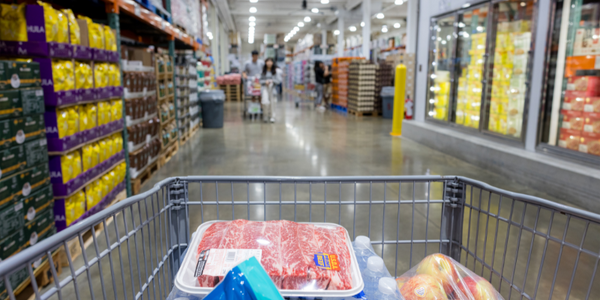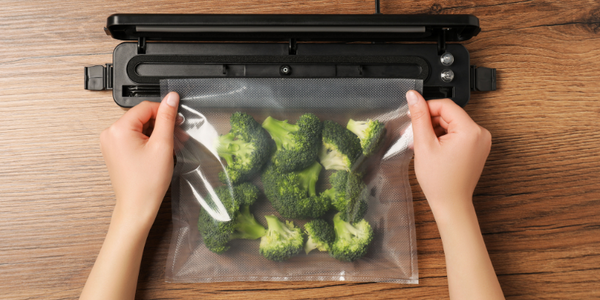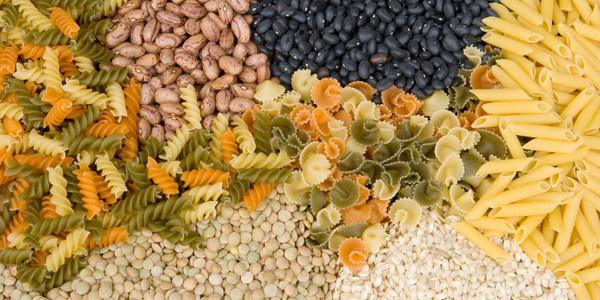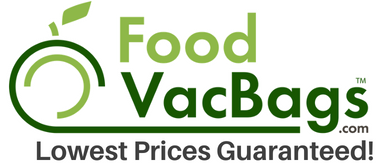Posted on July 19 2019

Have you ever wondered if there are foods you should not be vacuum sealing? There are many foods you can vacuum seal for extended freshness; unfortunately there are a handful that you should not preserve using this method. Some foods contain anaerobic bacteria, which can grow without the presence of air. Within a vacuum sealed pouch, with reduced oxygen, these bacteria will grow and may pose a risk to your health.
Do not vacuum seal:
- raw mushrooms
- garlic
- soft cheeses (blue cheese, brie, camembert, ricotta and other soft and unpasteurized cheeses)
- freshly cooked or steamed vegetables (safe to vacuum seal after they are at room temperature)
In addition, many common vegetables emit a gas when stored. If these vegetables - in the Cruciferae or Brassicaceae family - are kept in a vacuum sealed bag, this gas will cause them to spoil. To store these vegetables properly they should be blanched, dried, then vacuum sealed and frozen for storage.
Blanch first:
- arugula
- bok choy
- broccoli
- brussels sprouts
- cabbage
- cauliflower
- kale
- radishes
- turnips

Related Posts

The Six Rules To Follow When Buying In Bulk

Eat Fresh Garden Veggies All Winter Long




Can you vacuum seal fresh chopped onions?
Hi Sherri – You absolutely can vacuum seal dehydrated mushrooms and dehydrated cabbage!
Is it ok to vacuum seal raw dehydrated mushrooms and cabbage? I’ve did some a few months ago and they seem fine, no bags have exploded…so far…
Hi Gail – if you are planning on storing any meat long term, we do recommend vacuum sealing it and keeping it in the freezer.
I’m confused. I’m new to prepping and have seen conflicting information. Can I dehydrate thoroughly cooked ground beef, chicken and turkey, vacuum seal it, and keep it for long term storage? Do I have to refrigerate or freeze my packages?
Hi Rhonda – Coleslaw is a tricky one! I’ve done a bit of research. The internet seems to think you can vacuum seal and freeze coleslaw. They say a vinegar-based coleslaw does better than a mayo-based. The mayo-based gets a bit runny. People also seem to say you can keep it frozen for up to 3 months.
That said, we do not recommend vacuum sealing fresh cabbage because it will emit gases that will make it rot.
Hello Kylla – You can freeze granola to keep it fresh for longer. You should transfer granola to either an airtight container or a vacuum seal bag. Moisture is an enemy here, so make sure you have a good seal. If your granola has nuts in it, you’ll want to make sure you freeze it. Nuts, which have a high oil content, are susceptible to going rancid. Also, long-term exposure to air makes granola stale. Neither of these things will make your granola bad in a way it would be unsafe to eat, but the flavor will be different.
I bought 25lbs of a granola cereal. BBD is Oct 2020. I was thinking of freezing it in freezer bags. But I also have a vacuum sealer. Not sure what would be the better shelf life, freezer bags in the freezer, or vacuumed seal on a shelf.
The cereal contains pumpkin seeds and flax.
Hi
Is it ok to vacuum seal coleslaw ? If so how long will it last. Thankyou
Hi Jamie – The best place to store nuts is always going to be in the fridge or freezer as opposed to the pantry. Why? Because nuts contain a high amount of unsaturated fat, a delicate type of oil, which makes them highly prone to going rancid. Spoilage is accelerated even more in the presence of light, oxygen, and—you guessed it—heat. Storing nuts (and seeds) in the fridge or freezer limits their exposure to all three of these, and will result in your nuts tasting less bitter and more flavorful vibrant for a longer period of time.
You can keep a vacuum-sealed bag of shelled or in-shell nuts in the fridge or freezer for two years.
I have nuts, walnuts, almonds, pecans in the freezer and would like to warm them in the oven so they are dry and then vacuum seal them to have on the shelf……can that be done??
Hi Rose Maria – Cabbage is a cruciferous vegetable. If you vacuum seal fresh cabbage, it will emit gasses which will cause the bag to expand. This will cause your cabbage to go bad quickly. Normally you could blanch it and so this won’t happen. But with kimchi, you don’t cook the cabbage. With that said, I wouldn’t recommend vacuum sealing kimchi.
Hi! I’ve been looking on the internet for quiet long now I hope you could answer this one: Can I vacuum seal kimchi?
Hi Jennifer – From the research I’ve been able to do, roasting the garlic is key. As long as you roast it, you should be able to vacuum seal it and freeze it without issue.
Hi Jeanne – You can freeze fresh mushrooms. Once your mushrooms are frozen on a sheet pan, vacuum seal them. You can then keep them frozen until you’re ready to use them.
Hello Linda – Yes, you can vacuum seal sauerkraut then refrigerate or freeze sauerkraut.
Can you vacuum seal and freeze roasted garlic?
Can you freeze fresh mushrooms (on a baking sheet) and then vacuum seal them for extended storage?
Is it safe to vacuum seal raw sauerkraut?
Hi Terry – The short answer is yes, you can vacuum seal sliced cucumbers. If your vacuum seal machine has a pulse option, I would recommend taking the air out, but sealing them before they get squished by taking out too much air.